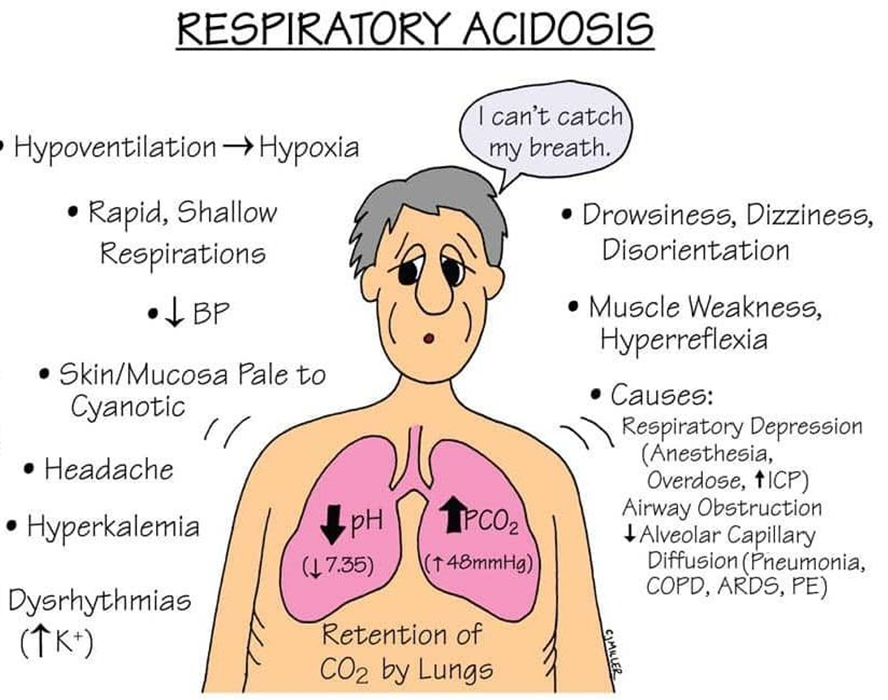A nurse is collecting the medical history from a client who has manifestations of syndrome of inappropriate antidiuretic hormone (SIADH). The nurse should ask the client if he has a history of which of the following conditions that can cause SIADH?
Lung cancer
Osteoarthritis
Dyspepsia
Liver cirrhosis
The Correct Answer is A
A. Certain malignancies, particularly lung cancer, can produce ectopic antidiuretic hormone (ADH) or ADH-like substances, leading to SIADH. It's important to inquire about a history of lung cancer due to its association with SIADH.
B. Osteoarthritis is a degenerative joint disease and is not known to cause SIADH.
C. Dyspepsia refers to upper gastrointestinal discomfort and is not associated with SIADH.
D. Liver cirrhosis can lead to various complications, including hepatic encephalopathy and ascites, but it is not typically associated with SIADH.
Nursing Test Bank
Naxlex Comprehensive Predictor Exams
Related Questions
Correct Answer is C
Explanation
A. Dry skin is not a typical manifestation of respiratory acidosis.
B. Abdominal pain is not a typical manifestation of respiratory acidosis.
C. Lethargy and altered mental status are common manifestations of respiratory acidosis due to the effects of hypercapnia (elevated PaCO2) on the central nervous system.
D. Numbness of fingers is not a typical manifestation of respiratory acidosis.

Correct Answer is B
Explanation
A. Dextran 40 is a plasma volume expander and not used for correcting hypernatremia.
B. Hypernatremia indicates a deficit of water relative to sodium. Providing hypotonic solutions like Dextrose 5 in water helps to dilute the sodium concentration in the body fluids, effectively treating hypernatremia.
C. Dextrose 10% in water is a hypertonic solution and would exacerbate hypernatremia by increasing the concentration of sodium in the body fluids.
D. 25% albumin is a hypertonic solution and would exacerbate hypernatremia by increasing the concentration of sodium in the body fluids.
Whether you are a student looking to ace your exams or a practicing nurse seeking to enhance your expertise , our nursing education contents will empower you with the confidence and competence to make a difference in the lives of patients and become a respected leader in the healthcare field.
Visit Naxlex, invest in your future and unlock endless possibilities with our unparalleled nursing education contents today
Report Wrong Answer on the Current Question
Do you disagree with the answer? If yes, what is your expected answer? Explain.
Kindly be descriptive with the issue you are facing.
